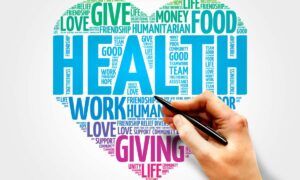Reiki is a popular form of alternative medicine that many people use for treatment. It’s so popular in fact, that it has become mainstream and forms of Reiki are now offered at hospitals. But what does this ancient healing technique want to hide from you?
Regardless, reiki is not meant to be a substitute for standard therapy; rather, it is intended to supplement it.
- Reiki is not a cure-all
- You should still see a doctor for medical conditions
- Reiki aftereffects
- What to know before getting reiki
- It's great for sleep
- Reiki isn't for everyone though!
- It's not just for humans
- Reiki is just one form of alternative medicine
- What do you feel when you do Reiki?
- What are some Reiki benefits?
- What are some Reiki concerns?
- it might not be right for everyone
- it does not guarantee results
- What is the cost?
- How does Reiki work?
- Do you have to learn Reiki in person?
- What do Reiki practitioners look for?
- Stomach cramps after reiki
- feeling tired after a reiki session
- Conclusion
Reiki is not a cure-all
Some people new to Reiki think Reiki can help you with anything and everything. This is simply not true–Reiki cannot cure diseases, nor can it heal broken bones or other physical ailments. All Reiki does is improve your feelings of well-being and in some cases help with stress relief and relaxation.
Another thing that Reiki doesn’t want you to know: It’s just one form of alternative medicine
Reiki is just one form of alternative medicine that’s been around for centuries. Other forms include acupuncture, aromatherapy, and herbalism. Each has its own benefits and focuses, but all share the same goal: to help improve your health holistically through natural means
You should still see a doctor for medical conditions
Reiki is for improving your well-being, but it’s still a good idea to see your doctor for medical conditions. The two can work together, and Reiki is wonderful when used in combination with other forms of medicine.
Reiki isn’t going away anytime soon though! It has become mainstream and its ever-growing presence can help bridge the gap between traditional doctors and alternative healers.
Read Also: 7 Lies You’ve Been Told About Reiki
Reiki aftereffects
some people who underwent a Reiki session may experience some aftereffects. These are different for everyone, but they usually include feelings of relaxation or well-being. You can also expect to feel energized after treatment since Reiki helps enhance your flow of energy! Getting a reiki experience sometimes feels like a head rush, so be prepared for any aftereffects you might feel afterward.
What to know before getting reiki
have to become an expert or anything but it’s good to be aware of what you’re going into and all that Reiki can do for you. Maybe a nice beginner’s guide like this one might help you better understand this ancient healing technique. After reading this, you have a better understanding of reiki. This is a great way to get introduced to Reiki. You can learn all about it without actually getting into a session and experiencing the aftereffects firsthand and spending too much money before you know what Reiki can do for you.
It’s great for sleep
This is my personal favorite use for Reiki because I can’t tell you how many nights of horrible sleep I went through before finding out about this. If your mind is running a mile a minute and keeping you up at night, consider getting some reiki done the next day to help calm down your system and get yourself ready to fall asleep quickly instead of running to the medicine cabinet and downing sleeping pills first.
Read Also: 14 Must-Have Reiki Accessories for Newbies and Professionals
Reiki isn’t for everyone though!
If you’re pregnant, suffer from any sort of mental illness, or take blood thinners then Reiki might not be the best option for your health and should only be used under advisement by a doctor. That’s because it can sometimes act as an emmenagogue (a substance that stimulates blood flow in the pelvic region) which can be dangerous for pregnant women and those with mental illnesses.
It’s not just for humans
Reiki isn’t just for people. It can also be used on animals, which is important to know if you have a pet at home or even your own hair! Reiki helps calm the nervous system and promote overall well-being in pets too so it’s great to treat them with this ancient healing technique every now and then
Reiki is just one form of alternative medicine
Some people new to Reiki think that it can help with anything and everything. This isn’t true–Reiki cannot cure diseases, nor does it heal broken bones or other physical ailments. It’s all about helping improve your feelings of well-being and in some cases helping relieve stress.
It’s still a good idea to see your doctor for medical conditions though. You can work together, and Reiki is wonderful when used in combination with other forms of medicine.
Recommend: What is Reiki for Cats? (The Best Way to Help Your Cat Relax?)
What do you feel when you do Reiki?
There are different kinds of emotions or feeling one can experience when doing Reiki. Some people can feel heat or tingling sensation in certain parts of their body while others might experience a head rush feeling after the session is done. there is an account of a recipient of a Reiki session experiencing powerful emotions that arise after their sessions. So while you might think your Reiki session is just a relaxing time, you might experience something more that’s well worth sharing.
Reiki won’t be pleasant for everyone every single time either so don’t think it to be the case. Some people can feel sick or nauseous after their sessions too so there are no guarantees when getting an energy healing treatment like this one.
What are some Reiki benefits?
Reiki has helped a lot of people all over the world find relief from different kinds of symptoms and problems. Benefits can vary depending on who is receiving it, but here’s an example: Some people might experience more relaxation or better sleep after their sessions while others might see improvements in certain aspects of their lives like their relationships or careers.
Reiki has helped people quit smoking, lose weight, and even overcome addiction to other substances too so it’s definitely worth trying out if you’re having major issues in your life!
Read also: Marconics Vs Reiki: A Simple (But Complete) Guide
What are some Reiki concerns?
Some of the most common concerns with alternative medicine treatments like this one include:
it Does not replace conventional medicine. Some people think alternative medicine is a replacement for the medicine they get from doctors, but this isn’t true. Reiki won’t cure cancer or help you lose weight either so it’s important to keep that in mind
it might not be right for everyone
If you have any mental illnesses then Reiki probably isn’t the best option because of its mental effects. the reason is that it can sometimes make certain mental illnesses worse because it enhances certain feelings like pain for example.
it does not guarantee results
The most important part of Reiki is that you actually do it every day, but even then there are no guarantees about what will happen to your life. Some people have reported experiencing great changes after doing this kind of treatment while others see the little-to-no effect when they do the sessions.
Reiki is not a replacement for other forms of medicine but can be helpful as an addition to treatment plans if necessary. It’s also important that you feel comfortable with your doctor before trying alternative treatments like this one so say something! You don’t want to risk having certain mental disorders worsen because you were afraid about what your doctor would think.
What is the cost?
The costs of Reiki sessions vary depending on who you’re getting the treatment from, but it’s important to always ask about pricing before agreeing to anything: some people might offer their services for free while others will charge a certain amount that adds up over time. The latter can get quite expensive if you’re going to a lot of sessions, so make sure you talk about money before getting started!
The most important part is that the treatment helps you in some way if it’s not making things worse. Ask questions and do research before committing to something because there might be other options out there for your problems!
How does Reiki work?
Reiki works by helping the recipient feel calmer and more relaxed through energy healing sessions that can help unblock energies in your body to ensure you’re at optimal health. Energy healers use their hands to transfer this energy into the person they are working with, which is how it’s done by Reiki practitioners.
Do you have to learn Reiki in person?
That’s a question a get a lot so here is the answer: you do not have to be in person with someone who practices Reiki for them to help you. It’s actually possible to learn how to give yourself Reiki sessions through online videos, but it might be best if you can find a reputable teacher that will guide your way and teach you everything there is about this practice! because being near to each other sometimes makes the session easier to do. having met in person before is not a requirement, but it might help you get started if that’s what makes you more comfortable.
What do Reiki practitioners look for?
Before starting with reiki sessions, it’s important to know what the person will look for in you during your sessions. The most common way Reiki practitioners check on their clients is by looking at the color of their energy field because different colors can indicate health issues that need attention or certain things like anger and stress which might block positive energies if not removed
The next thing they look for is how your energy field feels to them because this will usually indicate what is happening in the rest of the body. If you are relaxed, then that is a good sign but if there are dark spots or other issues present it can be important for health reasons so make sure to tell your practitioner about anything they might not have noticed!
Stomach cramps after reiki
Getting stomach cramps after a reiki session is a common issue that can happen to almost everyone who has done the practice before. It’s important to remember that it’s not dangerous and will usually go away after some time, but there are things you can do if the cramps become too painful:
–if it happens immediately after reiki, then drink water and relax for a bit.
-if it happens later on in the day, then you might want to consider changing your diet altogether and including foods that help relieve cramps like ginger. one of the reasons why this might happen is because you’re doing more than one type of energy work on yourself and your body just can’t handle it.
feeling tired after a reiki session
Feeling tired after a reiki session is pretty normal, but there are some things you can do to help yourself feel less tired. The first thing is making sure that your practitioner knows what’s happening so they don’t worry about anything and know how best to proceed with treatments:
-if the reiki session was draining, then it might be good if you invest in a nap or power nap.
-if you need more energy, then consider eating small meals throughout the day and avoid junk food. This will help your body recover faster so that you can continue with your daily activities.
There are other things to think about when it comes to feeling tired after a reiki session but these two are some of the most common issues when it comes to reiki sessions. If you’re interested in learning more about how energy healers use Reiki, then it’s a good idea to contact someone who does the practice for clients. this way you’ll be able to learn all of the things that might happen during and after your sessions!
Conclusion
Reiki is a form of energy healing that helps people with different ailments and conditions, but the experience can be draining for some so it’s important to talk to your practitioner about what might happen during sessions! This way you’ll know whether or not this practice works for you without having any unpleasant surprises later on down the road. Now you know what Reiki really wants to hide from you, and it isn’t much!




